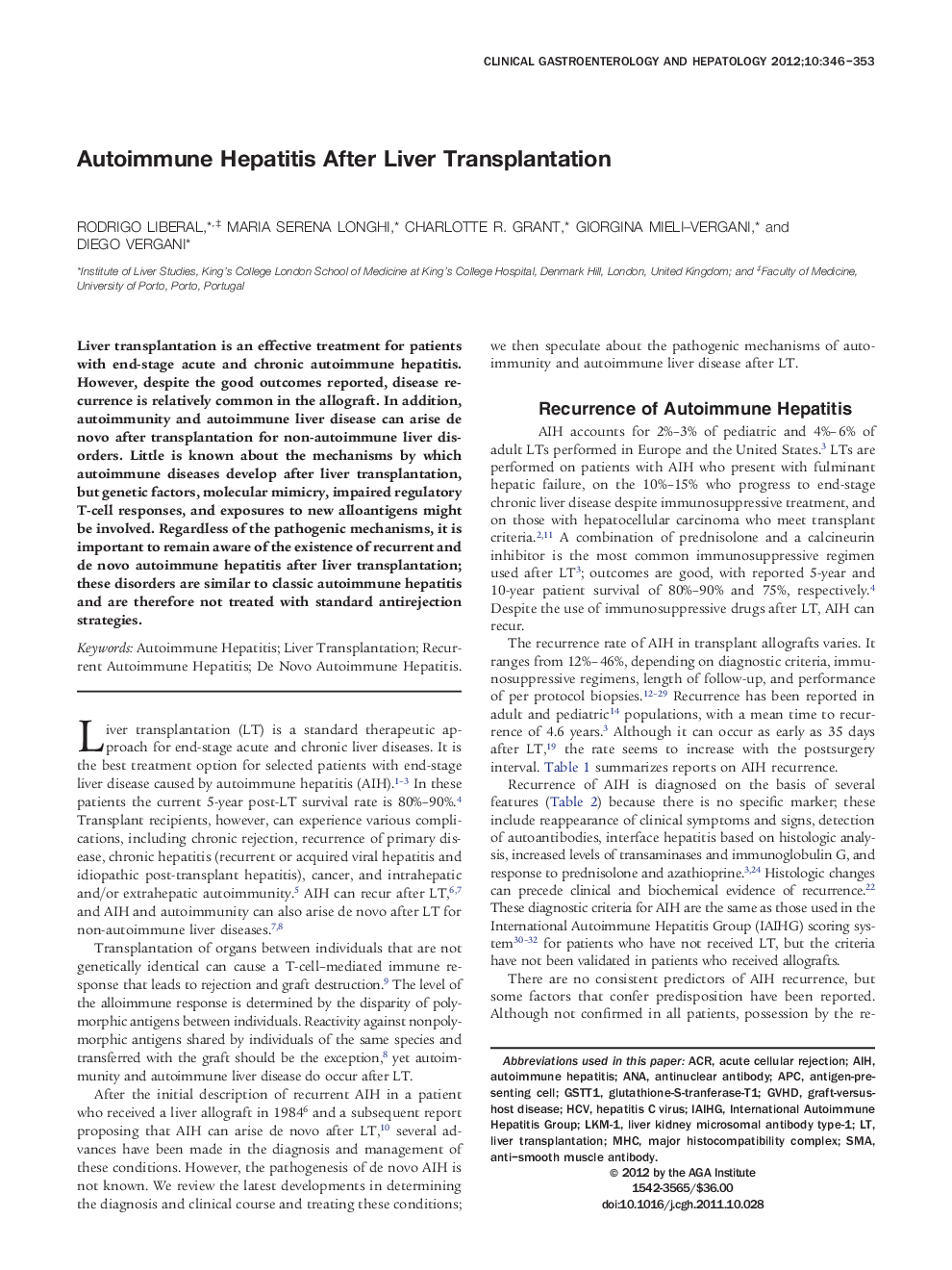| Article ID | Journal | Published Year | Pages | File Type |
|---|---|---|---|---|
| 3283369 | Clinical Gastroenterology and Hepatology | 2012 | 8 Pages |
Abstract
Liver transplantation is an effective treatment for patients with end-stage acute and chronic autoimmune hepatitis. However, despite the good outcomes reported, disease recurrence is relatively common in the allograft. In addition, autoimmunity and autoimmune liver disease can arise de novo after transplantation for non-autoimmune liver disorders. Little is known about the mechanisms by which autoimmune diseases develop after liver transplantation, but genetic factors, molecular mimicry, impaired regulatory T-cell responses, and exposures to new alloantigens might be involved. Regardless of the pathogenic mechanisms, it is important to remain aware of the existence of recurrent and de novo autoimmune hepatitis after liver transplantation; these disorders are similar to classic autoimmune hepatitis and are therefore not treated with standard antirejection strategies.
Keywords
Related Topics
Health Sciences
Medicine and Dentistry
Gastroenterology
Authors
Rodrigo Liberal, Maria Serena Longhi, Charlotte R. Grant, Giorgina Mieli-Vergani, Diego Vergani,
